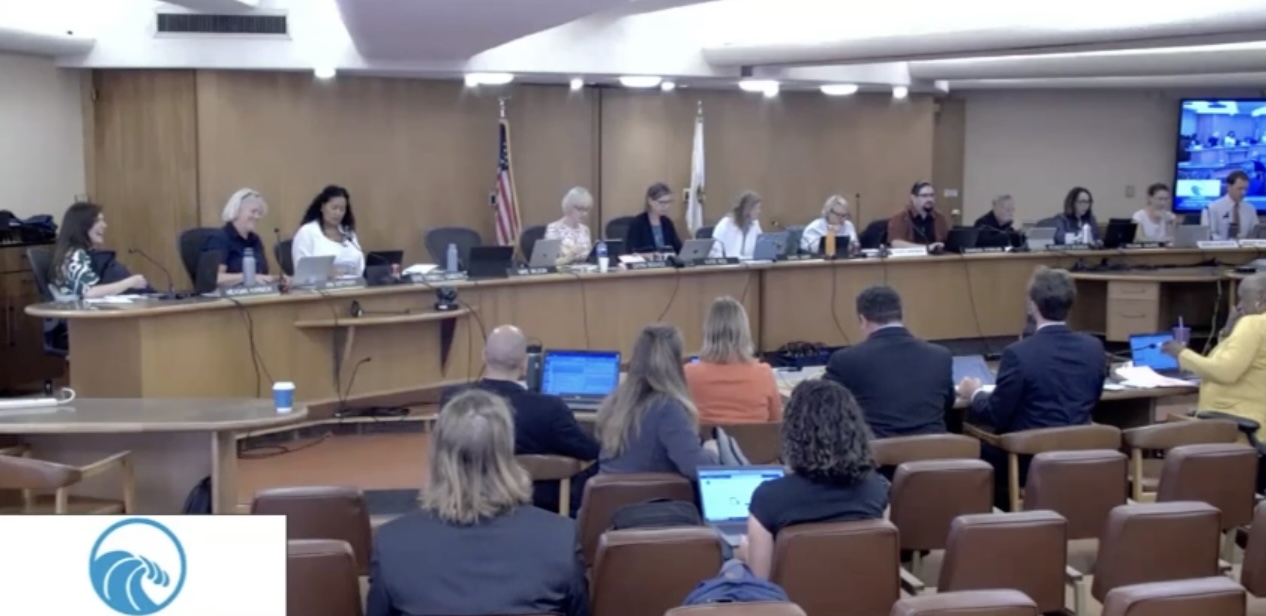|
Getting your Trinity Audio player ready...
|
VIDEO. From the California Coastal Commission meeting on Thursday, July 11th, 2024 held at the Marin County Civic Center, Board of Supervisors Chambers, as a hybrid meeting.
Click for Video
Starts at 1:19:41
Overview and Commission discussion on the Commission’s approach to protecting and providing lower-cost overnight accommodations in the coastal zone.
California Coastal Conservancy “Explore the Coast Overnight” Program
The Explore the Coast Overnight program was created to address the scarcity of affordable overnight accommodations at the California coast. The program funds planning, design, permitting, and/or construction of lower-cost coastal accommodation projects.
Despite the various access projects of the conservancy and other agencies, barriers to coastal access remain including the scarcity of affordable overnight accommodations for lower and middle-income individuals and families desiring to visit the coast.
To address this need for affordable coastal accommodations, in 2017 the California State Legislature enacted AB 250. This legislation created the State Coastal Conservancy’s Explore the Coast Overnight Program and called for the preparation of a Lower-Cost Coastal Accommodations Assessment.
The Explore the Coast Overnight Assessment can be found here: Explore the Coast Overnight Assessment.
Explore the Coast Overnight Pre-Application Solicitation
The California State Coastal Conservancy announces the Explore the Coast Overnight project pre-application solicitation. The Explore the Coast Overnight Program aims to expand opportunities for all Californians to stay overnight and experience the coast. Through this program the Conservancy is now soliciting pre-applications for planning, design, permitting, and construction of lower-cost coastal accommodation projects using the funds appropriated from Proposition 68, “The California Drought, Water, Parks, Climate, Coastal Protection, and Outdoor Access for All Act of 2018”.
- Who is eligible to apply?
Public agencies, federally-recognized tribes, and certain nonprofit organizations are eligible for funding. To be eligible, a nonprofit organization must qualify under the provisions of Section 501(c)(3) of the Internal Revenue Code.
- Where can I find the application materials?
Pre-applications will be considered on a rolling basis and evaluated by Conservancy staff. Based on this review, applicants may be invited to submit a full proposal or asked to provide further information on their project.
If you have any questions about your project, please contact:
Karyn Gear, North Coast Regional Manager
For projects located in: Del Norte County, Humboldt County, Mendocino County, Sonoma County, and Marin County
(510) 286-4171
Trish Chapman, Central Coast Regional Manager
For projects located in: San Francisco County, San Mateo County, Santa Cruz County, Monterey County, and San Luis Obispo County, and Santa Barbara County
(510) 286-0749
Megan Cooper, South Coast Regional Manager
For projects located in: Ventura County, Los Angeles County, Orange County, and San Diego County
(510) 286-4172
Explore the Coast Overnight Webinar
On January 8th, 2019, the Conservancy hosted a Webinar to discuss the draft of the Explore the Coast Overnight Assessment. The recording of this webinar is here.
For more information, contact:
Rodrigo Garcia, Project Development Specialist , (510) 286-0316, rodrigo.garcia (at) scc.ca.gov
The California Coastal Commission has 12 voting members and 3 non-voting members. Six of the voting members are “public members,” and six are local elected officials who come from specific coastal districts. All voting members are appointed either by the Governor, Senate Rules Committee, or the Speaker of the Assembly; each appoints four commissioners, two public members and two elected officials.
Each Commissioner may appoint an alternate to serve in his or her absence. The Secretaries of the Natural Resources Agency and the State Transportation Agency and the Chair of the State Lands Commission serve as non-voting members and may appoint a designee to serve in their place.





